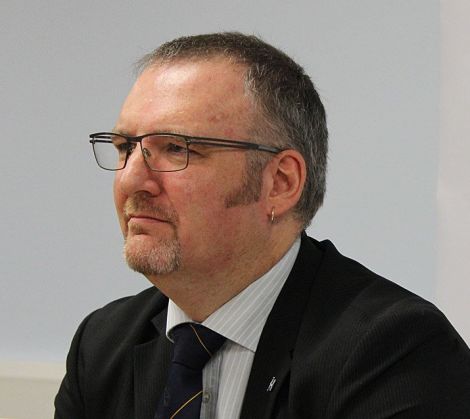News / Staffing and finance problems mount for NHS
NHS SHETLAND is facing a tough future with ongoing funding and recruiting problems potentially compounded by a hard Brexit that might further hinder recruitment and staff retention.
The health service intends to open discussions on a three-year financial plan with the Scottish Government which is itself expected to announce its own multi-annual financial framework for health spending on Thursday (4 October).
A Shetland Health Board meeting on Tuesday (2 October) also heard that the pressure for service restructure is mounting as the board may have to grasp the fact that recruitment problems cannot be overcome.
The service is already overspent against budget by £1.8m for the year so far, a report by finance director Colin Marsland shows. Spending is almost eight per cent above budget. Eighty per cent of that is caused by supplemental staffing or agency locums.
A hard Brexit may further threaten staffing levels throughout the service. NHS Shetland will issue a survey to establish just how many EU nationals it employs following a recent meeting where several EU staff expressed concerns about their future following Brexit.
The health board heard that the bill for locum medics was adding significantly to financial pressures that will see NHS Shetland chief executive Ralph Roberts outline a case why Shetland should get more from the Scottish Government.
Health board chairman Gary Robinson said later that seeking a loan from the government (brokerage) was the “last resort” and arguments that extra support is due should be made first.
He said that while every northern health board bore the expense of locums, few had the additional cost of travel and accommodation for staff cover that Shetland faced.
Robinson added: “What compounds it in Shetland is the amount of travel and accommodation we have associated with having locums and that’s certainly something that the other boards, with the exception of the island boards, are not having to spend as much on.
Become a member of Shetland News
“We look forward to the financial framework that is going to be announced and the expectation is that will be really helpful in terms of planning ahead for the services that were are going to be able to deliver. We can build a medium term financial plan around that similar to what the council has done for a number of years now, for example.
“We will certainly be making every effort to get ourselves into a balanced financial position but there will be some real challenges in that respect.”
Roberts said there was £37 million spent on locums in northern health boards which put the rough £3 million figure for Shetland in context, but this spend certainly hit the more remote and rural boards more heavily.
He warned the board that services may have to be restructured around staff availability and that the failure was not one of recruitment, so much as lack of staff supply.
Roberts said: “We need to make every attempt to recruit where there are posts to fill… but we have to adapt our services to the reality of the workforce that’s there.”
Robinson added later: “Clearly we want to deliver the best service we can, but we have to acknowledge that we can only deliver services where we have staff to actually provide the service, so it is almost certain that we are going to have to redesign the service… around the resources we have got.
“We can decide to restructure, but the reality is that we will not reap the benefits until a year, two years, three years, five years down the line. In time we would hope to be able to bring the board back into a balanced financial position.”
Robinson said that the health board was keen that all employees, regardless of where they were from, wanted to continue to work for NHS Shetland.
He added: “Clearly the uncertainty, more than anything else around Brexit, is putting a considerable strain on individuals within the organisation, and there is not a great deal we can do other than support our staff through that.
“We do not have figures locally, but we have certainly seen figures nationally for the reduction in EU migrants that are coming into the UK to work in health, and that is significant, especially at a time when we are struggling to recruit.
“It is further compounded by the fact that there are not enough, what you might describe as home grown staff, coming through the system, so NHS boards have been reliant on that now for a number of years.”
Robinson said that there was also a Brexit risk to procurement of equipment and medicines that was generally done at national level.
He added: “We are acutely aware that we are the end of that procurement line. I suppose the risk for us is that things run out before they get to us.
“There is a whole lot of uncertainty around it, but we are hearing about the possibility of delays. All of that has to come through customs and checks and if we are not part of the European Union and we do not have an agreement in place then a hard Brexit would provide a risk to that supply chain.”
Become a member of Shetland News
Shetland News is asking its readers to consider paying for membership to get additional perks:
- Removal of third-party ads;
- Bookmark posts to read later;
- Exclusive curated weekly newsletter;
- Hide membership messages;
- Comments open for discussion.
If you appreciate what we do and feel strongly about impartial local journalism, then please become a member of Shetland News by either making a single payment, or setting up a monthly, quarterly or yearly subscription.





























































